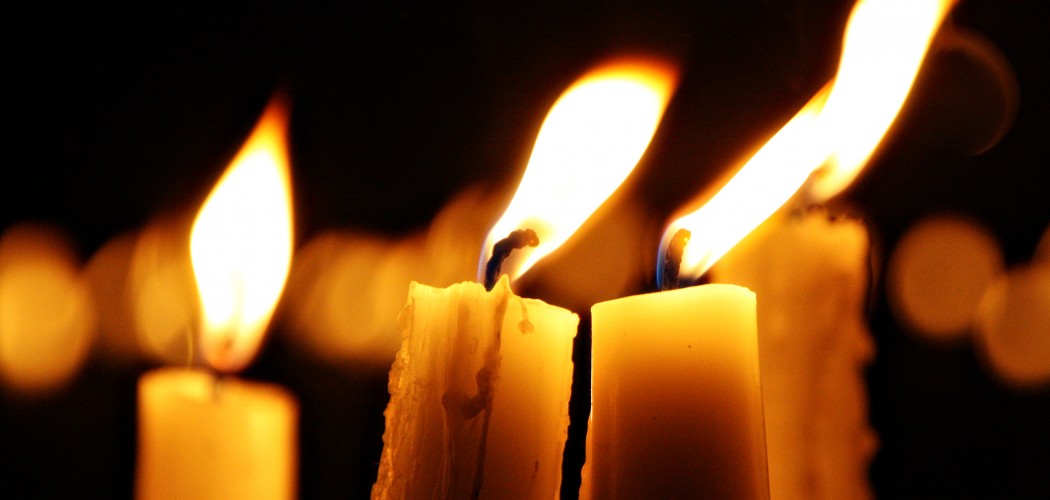Texts: Isaiah 12:2-6 + Luke 1:5-25 + Luke 1:26-38 + Matthew 1:18-25 + Isaiah 43:1-7,15-21

What might you do if you weren’t afraid?
Would you quit your job?
Would you ask him out?
Would you insist, “Stop. No more!”
Would you tell the truth?
Would you finally say, “I love you.”
What might we do if we weren’t afraid?
Would we ask how she ended up on the corner begging for change?
Would we share more and keep less?
Would we interrupt the joke told at his expense?
Would we listen more than we speak?
Would we give up our guns?
What might happen if the nations weren’t afraid?
Would they distribute their resources more freely?
Would they find new exports that cannot kill?
Would they dismantle the drones and the tanks and the missiles?
Would they tear down the walls and open the roads?
Would they send their children to school instead of to war?
Fear is the enemy of change. Change requires us to take a risk, to imagine a future different from our present and to act as though that future was already on the way. Fear cannot dare to risk, and will endure a tortuous present rather than chance an even more disastrous future.
Fear is real, but it makes for a poor reality. It is impossible to live in this world, awake, without seeing true cause for real fear. All around us we find evidence to make the case for fearful living. The career employee laid off just years before retirement. The friend or relative diagnosed in the prime of life. The marriage shattered by an inconceivable infidelity. The son or daughter lost to war. The empty schoolyard and the grieving nation. The case for fear makes itself. It needs no help from us.
The case for hope requires angels, messengers of a new reality working to be born, laboring to become real. The angel appeared to old Zechariah as he offered his prayers in the Temple, “do not be afraid.” The angel appeared to young Mary as she awaited the day of her marriage, “do not be afraid.” The angel appeared to righteous Joseph as he prepared to take a wife, “do not be afraid.” God’s message came to the nation of Israel, occupied and dispossessed, “do not fear.”
Before anything else can be said — before God can assure an old man that his dreams of parenthood are within his grasp, before God can explain the scandal taking root in the young woman’s womb, before God can convince the man to set aside conventions and laws, before God can promise the people that their children will all be called home — before anything else can be said, God’s messengers must first say, “do not be afraid.”
What might happen if fear was set aside?
The refusal to let fear rule our lives is the first step along the path that leads to a new life. It is the decision to take a new road, to commit to a new future. It is not easy, and it does not come without its own costs. Of this open road, the poet Walt Whitman writes,
“Listen! I will be honest with you,
I do not offer the old smooth prizes, but offer rough new prizes,
These are the days the must happen to you:
You shall not heap up what is call’d riches,
You shall scatter with lavish hand all that you earn or achieve,
You but arrive to the city to which you were destin’d,
you hardly settle yourself to satisfaction before you
are call’d by an irresistible call to depart,
You shall be treated to the ironical smiles and
mockings of those who remain behind you,
What beckonings of love you receive you shall only answer
with passionate kisses of parting,
You shall not allow the hold of those who spread their
reach’d out hands toward you.”
Walt Whitman, “Song of the Open Road,” stanza 11
Zechariah and Elizabeth conceive, and their son is the herald of a new future. He is executed in prison. Mary and Joseph provide a home for God’s own Beloved child, Israel’s long awaited savior. He dies on a cross… but not before the world is forever changed.
How might your world change if fear did not hold the last word?
Long before God’s messengers appeared to Zechariah, or Joseph, or Mary, God spoke to God’s people Israel, as they longed for a home most of them had never in their lifetimes seen. To a people dispossessed by empire and despairing that the future could ever be different from the past, God declared,
“Do not remember the former things, or consider the things of old. I am about to do a new thing; now it springs forth, do you not perceive it? I will make a way in the wilderness and rivers in the desert.” (Isa. 43:18-19)
Into a world filled with violence, into a manger because the small business owners said there was no room, into a people occupied by a foreign empire, into a family touched by scandal, God puts on flesh and becomes vulnerable to the human condition. To all the conditions you and I face each day. With a fearlessness that can only be born of love, God does a new thing and the world is made new.
Tonight, as we approach the longest night, as we wait for the coming of the Lord, God’s messengers arrive under the cover of darkness to speak to us those ancient words, bearing the promise of a new future:
Do not be afraid.